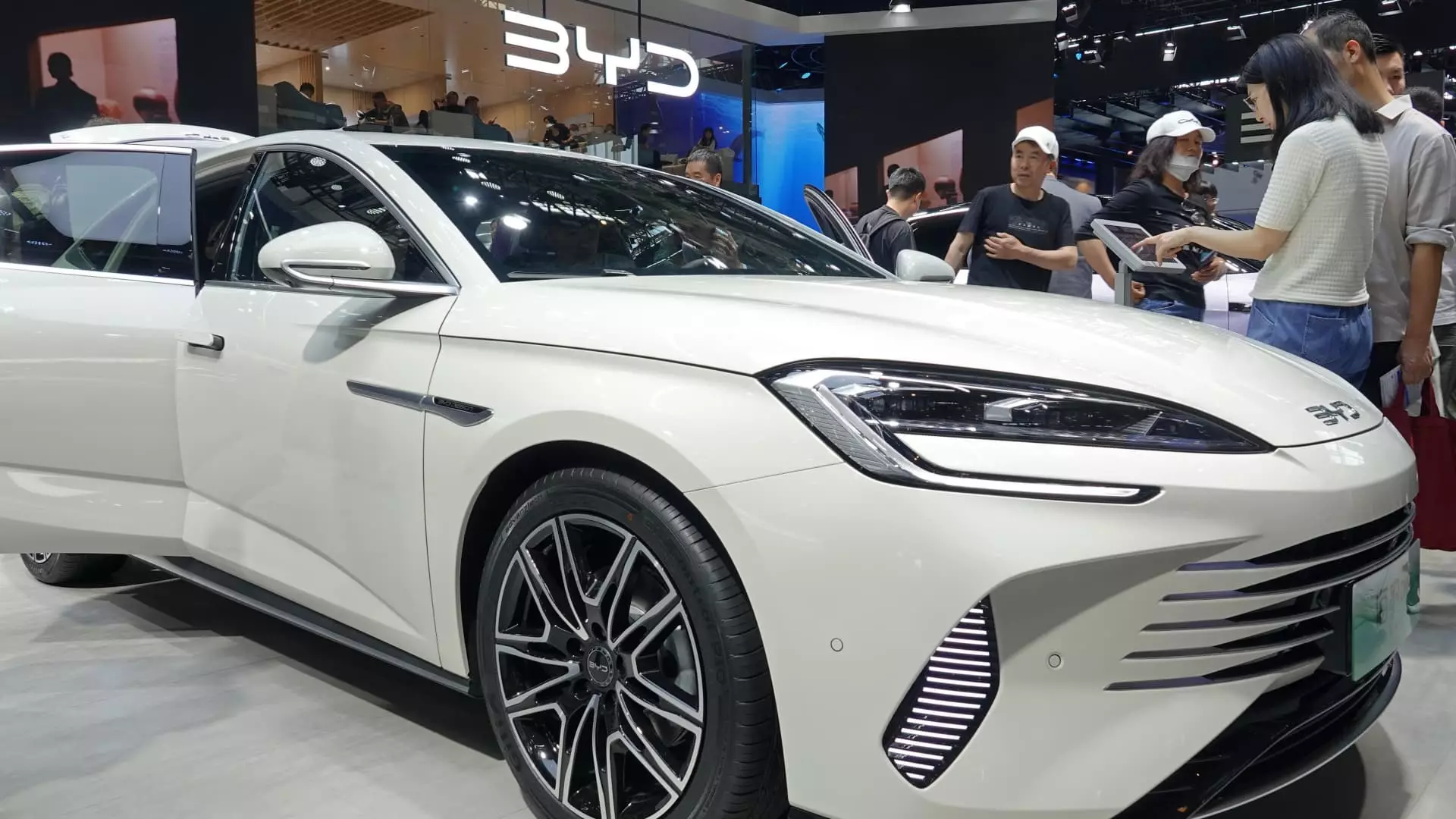The European Union recently announced higher tariffs of up to 38% on Chinese electric vehicles, causing a surge in the stock prices of Chinese EV makers. Hong Kong’s Hang Seng index saw a significant increase of 1.23% at the open, largely driven by gains in EV stocks. Leading the pack was EV company BYD, which jumped 8% during morning trade. Geely also saw a rise of about 4%, while Nio and Li Auto experienced increases of 1.75% and 2.67%, respectively. However, state-backed SAIC was down more than 2%, reflecting the mixed impact of the EU tariffs on different companies in the industry.
The EU’s decision to impose extra tariffs on Chinese EV players with a strong presence in Europe has sent shockwaves through the market. BYD will now face additional tariffs of 17.4%, while Geely will be subjected to an extra 20% duty. SAIC, on the other hand, will have to bear the highest additional duties of 38.1%. These tariffs are in addition to the standard 10% duty already imposed on imported EVs. Other Chinese EV firms that were part of the EU investigation but not sampled will face 21% in extra tariffs, while those which did not cooperate in the probe will be hit with 38.1% in additional duties.
The EU’s rationale behind imposing these tariffs is rooted in the belief that Chinese EV makers benefit from unfair subsidization, which poses a threat of economic injury to the EU’s EV industry. The EU has made it clear that these measures are a response to the ongoing probe that began in October. While the tariffs are currently provisional, they are set to be enforced from July 4 if discussions with Chinese authorities do not lead to a resolution. Definitive measures will be put in place within four months of the imposition of provisional duties, according to the EU.
Vincent Sun, an equity analyst at Morningstar, views the EU tariffs as relatively moderate compared to the 100% tariffs imposed by the U.S. on Chinese EV imports. The additional duties are in line with market expectations of 20%-25%, signaling a somewhat predictable outcome. The EU’s move is seen as a warning to companies like SAIC to consider building production facilities within Europe to avoid hefty tariffs. Companies like BYD and Geely, who already have investments in Europe, are likely to be less impacted by the increased tariffs compared to SAIC.
The EU’s decision to raise tariffs on Chinese EV makers has had a significant impact on the industry. While some companies have seen stock prices soar, others have faced a decline. The implications of these tariffs go beyond just financial aspects, signaling a shift in the dynamics of the global EV market. It remains to be seen how Chinese companies will respond to these challenges and whether they will adjust their strategies to comply with the EU’s demands.


Leave a Reply
You must be logged in to post a comment.